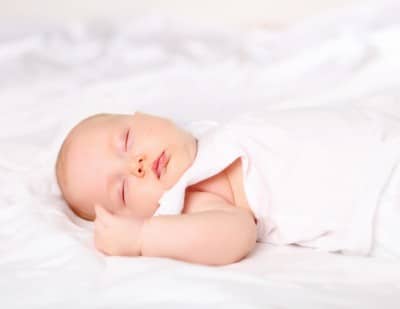The benefits of a good night sleep are abundant. For children, sleep is an integral part of their development. In his book, Healthy Sleep Habits, Happy Child, Marc Weissbluth, MD, sums it up perfectly noting,
“Sleep is the power source that keeps your mind alert and calm. Every night and at every nap, sleep recharges the brain’s battery. Sleeping well increases brainpower just as weight lifting builds stronger muscles, because sleeping well increases your attention span and allows you to be physically relaxed and mentally alert at the same time. Then you are at your personal best.”
But how much is enough? Today the National Sleep Foundation released their updated recommendations. To determine the sleep ranges they convened experts from sleep, anatomy and physiology, as well as pediatrics, neurology, gerontology and gynecology to reach a consensus from the broadest range of scientific disciplines.
A summary of the new recommendations includes:
- Newborns (0-3 months): Sleep range narrowed to 14-17 hours each day (previously it was 12-18)
- Infants (4-11 months): Sleep range widened two hours to 12-15 hours (previously it was 14-15)
- Toddlers (1-2 years): Sleep range widened by one hour to 11-14 hours (previously it was 12-14)
- Preschoolers (3-5): Sleep range widened by one hour to 10-13 hours (previously it was 11-13)
- School age children (6-13): Sleep range widened by one hour to 9-11 hours (previously it was 10-11)
- Teenagers (14-17): Sleep range widened by one hour to 8-10 hours (previously it was 8.5-9.5)
- Younger adults (18-25): Sleep range is 7-9 hours (new age category)
- Adults (26-64): Sleep range did not change and remains 7-9 hours
- Older adults (65+): Sleep range is 7-8 hours (new age category)
“This is the first time that any professional organization has developed age-specific recommended sleep durations based on a rigorous, systematic review of the world scientific literature relating sleep duration to health, performance and safety,” said Charles A. Czeisler, PhD, MD, chairman of the board of the National Sleep Foundation, chief of sleep and circadian disorders at Brigham and Women’s Hospital, and Baldino Professor of Sleep Medicine at the Harvard Medical School. “The National Sleep Foundation is providing these scientifically grounded guidelines on the amount of sleep we need each night to improve the sleep health of the millions of individuals and parents who rely on us for this information.”
A new range, “may be appropriate,” has been added to acknowledge the individual variability in appropriate sleep durations. The recommendations now define times as either (a) recommended; (b) may be appropriate for some individuals; or (c) not recommended.
“The National Sleep Foundation Sleep Duration Recommendations will help individuals make sleep schedules that are within a healthy range. They also serve as a useful starting point for individuals to discuss their sleep with their health care providers,” said David Cloud, CEO of the National Sleep Foundation.
National Sleep Foundation’s Sleep Duration Recommendations:
|
Age |
Recommended |
May be appropriate |
Not recommended |
|
Newborns 0-3 months |
14 to 17 hours |
11 to 13 hours 18 to 19 hours |
Less than 11 hours More than 19 hours |
|
Infants 4-11 months |
12 to 15 hours |
10 to 11 hours 16 to 18 hours |
Less than 10 hours More than 18 hours |
|
Toddlers 1-2 years |
11 to 14 hours |
9 to 10 hours 15 to 16 hours |
Less than 9 hours More than 16 hours |
|
Preschoolers 3-5 years |
10 to 13 hours |
8 to 9 hours 14 hours |
Less than 8 hours More than 14 hours |
|
School-aged Children 6-13 years |
9 to 11 hours |
7 to 8 hours 12 hours |
Less than 7 hours More than 12 hours |
|
Teenagers 14-17 years |
8 to 10 hours |
7 hours 11 hours |
Less than 7 hours More than 11 hours |
|
Young Adults 18-25 years |
7 to 9 hours |
6 hours 10 to 11 hours |
Less than 6 hours More than 11 hours |
|
Adults 26-64 years |
7 to 9 hours |
6 hours 10 hours |
Less than 6 hours More than 10 hours |
|
Older Adults ? 65 years |
7 to 8 hours |
5 to 6 hours 9 hours |
Less than 5 hours More than 9 hours |
The recommendations are the result of multiple rounds of consensus voting after a comprehensive review of published scientific studies on sleep and health.







